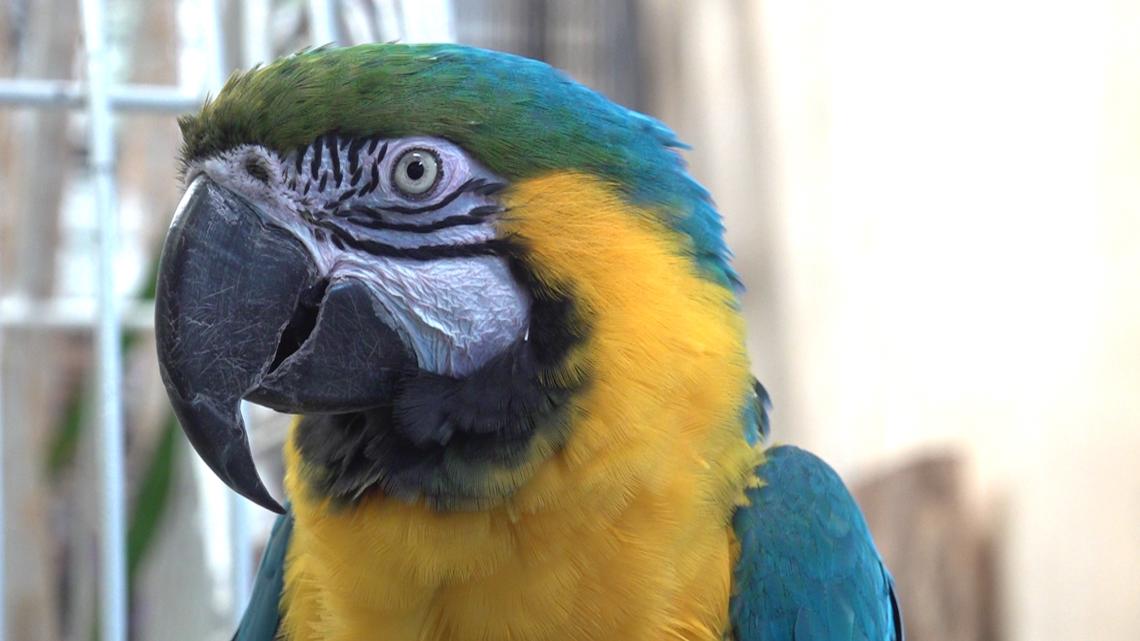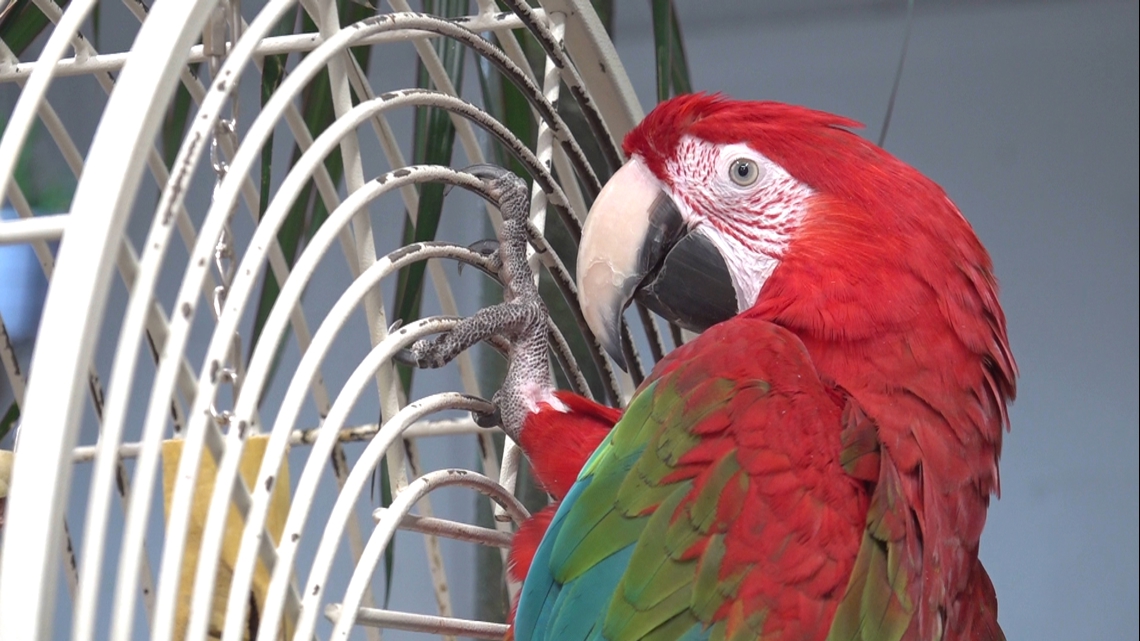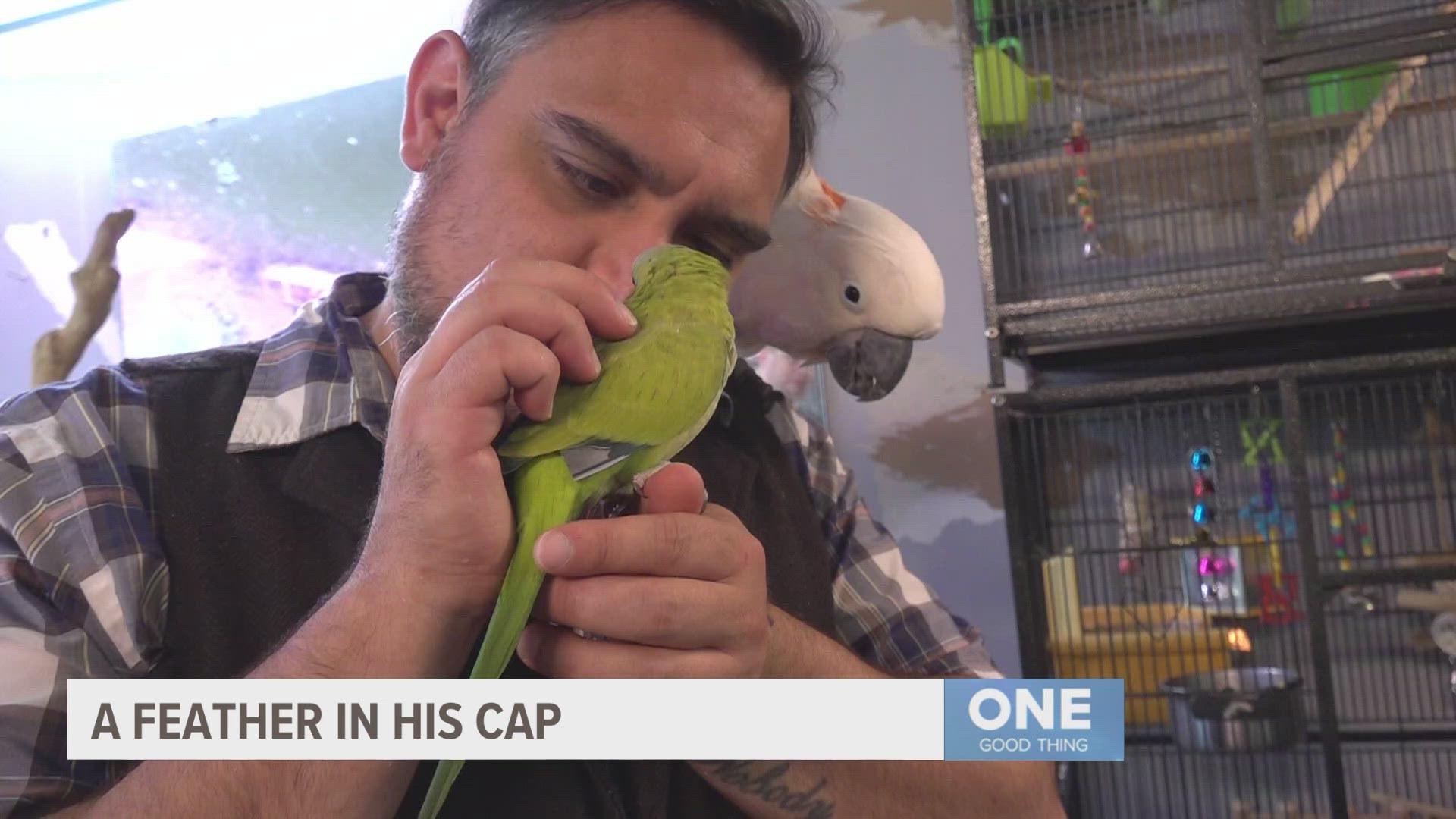GRAND RAPIDS, Mich. — Stepping inside the Albatross Aviary is like being transported to a different place in the world.
The hustle and bustle of the city streets are replaced with the sounds of gentle music, ample greenery and exotic residents.
“Cockatoos come from Australia. We get the macaws and the conures coming from South America. You get the ring necks coming from India. All over the world, people are grabbing pretty birds and unfortunately, there's a market for it,” said Gairen Tembreull.
Gairen, the aviary’s executive director, is a bearded man often seen wearing a brown fedora that makes you feel like you’re about to embark on an Indiana Jones-style adventure.
He's loved birds since he was just a child and has a passion for ensuring that birds sold as pets here in America are treated well. Oftentimes, that's not the case.
“I specialize in taking care of abused and abandoned birds with behavioral issues. Most of the behavioral issues that I deal with run the gamut from self-mutilation to aggression to antisocial behaviors,” he said.
Gairen believes that many people buy birds because they’re beautiful pets to show off, especially on social media.
But he said a lot of people who bring birds home don’t realize what a tremendous commitment these animals are.


“What I say is that they make horrible pets, but they make wonderful companions. If you're willing to dedicate your life, like you would to a small child, to a bird, then absolutely do it. But if you think 15 years of taking care of a dog is a long time, don't get a bird. They need about twice the amount of attention and live five times as long,” he said.
A handful of volunteers help out at the aviary, mostly maintaining the facilities.
This frees up Gairen to spend the bulk of his time giving dozens of birds the attention he said they need and deserve. And the birds have given as much back to Gairen as he’s given to them.
“In 2014, I was in a motorcycle accident. I shattered my hips and had a [traumatic brain injury]. It was pretty bad,” he said.
“I couldn't produce or provide, and so I found myself in a very dark place, and I was questioning on whether or not I was going to stick around.”
Caring for birds gave Gairen purpose.
While working on his trauma, he discovered “better and interesting ways to deal with the trauma that birds are exhibiting.”
He founded Albatross Aviary in 2015 and has been working to make a difference for birds ever since.
"I dedicated my life to taking care of birds and that's just what I do now. Everything else just comes second, because as far as it goes, birds are loud, but they're pretty voiceless when it comes to their needs being met and being taken care of. There aren't very many people voicing the needs for birds," he said.


“I've been focusing in on childhood developmental trauma, like you'd see in the foster system, to work with the birds. It has been working gangbusters. It's been absolutely wonderful in the ways of treating them like individuals and dealing with their individual fears and triggers."
But the aviary’s mission has come with a considerable amount of setbacks, mostly financial.
“We run our nonprofit a little differently than most rescues do. Most rescues build their financial structure on adoptions,” he said.
“We like to see the birds in the safest environments and most people aren't set up for that. We set up a six-month training program, but a lot of people don't make it through it once they finally understand the responsibility and the amount of care and special needs that the birds have.”
Because of that, Albatross Aviary is having trouble staying open.
They’re asking for donations and volunteers to help them with their mission.
Volunteer orientations are held on the first Sunday of each month and Gairen said people can see for themselves how life-changing it can be to take care of these creatures.
“They’ve taught me about forgiveness. Watching these birds come from the most horrible environments to coming back to being loving and caring and totally rebuilding, teaches me that no matter how hard it gets, there's still hope for recovery,” he said.
If you’d like to donate or volunteer, you can learn more on the aviary’s website.
Do you have a deeply personal story with a call to action? That's what One Good Thing is all about! Email your story ideas to OneGoodThing@13OnYourSide.com.

